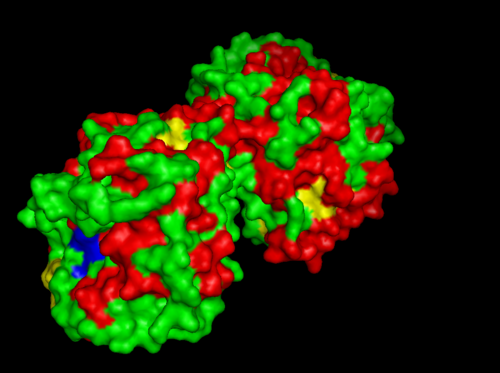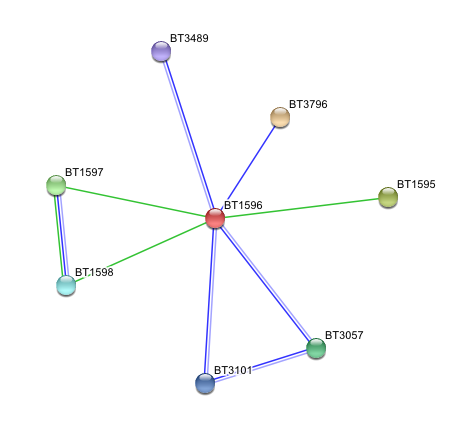3b5q Function: Difference between revisions
| Line 66: | Line 66: | ||
'''Predicted Functional Partners''' | '''Predicted Functional Partners''' | ||
BT3796 Putative secreted sulfatase ydeN (518 aa) | BT3796: Putative secreted sulfatase ydeN (518 aa). | ||
BT1595 Transcription termination factor rho (722 aa) | BT1595 Transcription termination factor rho (722 aa). | ||
BT1597 Two-component system sensor histidine kinase (539 aa) | BT1597 Two-component system sensor histidine kinase (539 aa). | ||
BT3057 N-acetylgalactosamine-6-sulfatase (508 aa) | BT3057 N-acetylgalactosamine-6-sulfatase (508 aa). | ||
BT1598 Putative two-component system sensor histidine (655 aa) | BT1598 Putative two-component system sensor histidine (655 aa). | ||
BT3101 N-sulphoglucosamine sulphohydrolase (455 aa) | BT3101 N-sulphoglucosamine sulphohydrolase (455 aa). | ||
BT3489 Arylsulfatase B {UniProtKB/TrEMBL-Q8A219} (458 aa) | BT3489 Arylsulfatase B {UniProtKB/TrEMBL-Q8A219} (458 aa). | ||
Revision as of 02:42, 21 May 2008
1. Function of sulfatases
Sulfatases are enzymes,which hydrolyse sulfate ester bonds of substrates. Most of the family members has shown to contain a highly conserved cystine residue and a bivalent metal binding site.
2. Functional site
MSA data revealed some conserved residues on the sequence. They were mapped on the three dimantional structure.
3. Arylsulfatase K (BT1596) Interactions with other proteins
Input Protein
BT1596 Putative sulfatase yidJ (481 aa)
(Bacteroides thetaiotaomicron)
Predicted Functional Partners BT3796: Putative secreted sulfatase ydeN (518 aa). BT1595 Transcription termination factor rho (722 aa). BT1597 Two-component system sensor histidine kinase (539 aa). BT3057 N-acetylgalactosamine-6-sulfatase (508 aa). BT1598 Putative two-component system sensor histidine (655 aa). BT3101 N-sulphoglucosamine sulphohydrolase (455 aa). BT3489 Arylsulfatase B {UniProtKB/TrEMBL-Q8A219} (458 aa).
Click here to go Back

